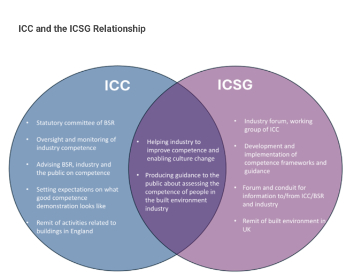Leading the Charge for Building Efficiency and Net Zero Transformation Post COP28

|
| Julia Evans OBE, CEO of of BSRIA gives a post COP 28 video summary of key successes |
This year’s COP summit finally concluded following heated debate between the 198 participating countries that over-ran into the early hours of the last Wednesday morning. The issue dominating the headlines has been the severity of the language used to signal the crucial phasing out of fossil fuels.
However, at this first global stocktake important steps have also been taken in terms of the energy efficiency of the built environment and the road to Net Zero. Specifically, a Global Pledge on Renewables and Energy Efficiency saw countries commit to not only triple renewable energy capacity by 2030 but also double the global annual rate of energy efficiency improvements in that same time frame.
Furthermore, COP28 played host to the official launch of the Buildings Breakthrough Agenda, a platform for international collaboration between national governments to accelerate climate action on buildings, in partnership with the UN Environment Programme. 28 countries have signed up to take part, including the UK, each committing to collectively act to ensure worldwide near-zero emission and resilient buildings are the new normal by 2030.
As cities are estimated to be responsible for 75% of greenhouse gas emissions, the role of the built environment is key to meeting the Paris Agreement. The pledges made at COP28, especially during day 6, highlight and encourage collaboration between national and local governments, businesses and service providers to transform the built environment to help meet these goals.
In this regard, BSRIA’s position as an unbiased and expert voice has never been more significant. Through our complete suite of services, and with the help of our impartial experts, BSRIA can provide the advice and expertise needed to maximise product and building efficiency whilst also considering the health of building occupants and the quality of the air we breathe.
Acting with urgency is a shared responsibility, but it can also provide significant opportunity.
Get in touch with BSRIA and allow us to help you lead the way in enacting positive change and driving the net zero agenda.
This article appears on the BSRIA news and blog site as "Leading the Charge for Building Efficiency and Net Zero Transformation Post COP28" dated December 2023.
--BSRIA
[edit] Related articles on Designing Buildings
- Achieving zero carbon.
- Carbon emissions.
- Carbon plan.
- Climate change science.
- Climate Change Levy.
- Climate Change Committee progress reports.
- Conference of parties all events
- COP28 and the Path Ahead for Industry.
- COP21 Paris 2015.
- CRC Energy Efficiency Scheme.
- Energy Act.
- Emission rates.
- Energy related products regulations.
- Energy targets.
- Government net zero review 2022.
- Greenhouse gases.
- Intergovernmental Panel on Climate Change IPCC.
- Kyoto protocol.
- LETI calls for responses to BEIS net zero review.
- Net zero carbon 2050.
- Net Zero Review underlines role for engineering services.
- Net zero strategy: build back greener.
- Sustainability.
- The Edge policy proposals for the built and natural environment 2022.
- The Low Carbon Transition Plan: National strategy for climate and energy.
- The sustainability of construction works.
- UK Climate Change Risk Assessment.
Featured articles and news
Twas the site before Christmas...
A rhyme for the industry and a thankyou to our supporters.
Plumbing and heating systems in schools
New apprentice pay rates coming into effect in the new year
Addressing the impact of recent national minimum wage changes.
EBSSA support for the new industry competence structure
The Engineering and Building Services Skills Authority, in working group 2.
Notes from BSRIA Sustainable Futures briefing
From carbon down to the all important customer: Redefining Retrofit for Net Zero Living.
Principal Designer: A New Opportunity for Architects
ACA launches a Principal Designer Register for architects.
A new government plan for housing and nature recovery
Exploring a new housing and infrastructure nature recovery framework.
Leveraging technology to enhance prospects for students
A case study on the significance of the Autodesk Revit certification.
Fundamental Review of Building Regulations Guidance
Announced during commons debate on the Grenfell Inquiry Phase 2 report.
CIAT responds to the updated National Planning Policy Framework
With key changes in the revised NPPF outlined.
Councils and communities highlighted for delivery of common-sense housing in planning overhaul
As government follows up with mandatory housing targets.
CIOB photographic competition final images revealed
Art of Building produces stunning images for another year.
HSE prosecutes company for putting workers at risk
Roofing company fined and its director sentenced.
Strategic restructure to transform industry competence
EBSSA becomes part of a new industry competence structure.
Major overhaul of planning committees proposed by government
Planning decisions set to be fast-tracked to tackle the housing crisis.
Industry Competence Steering Group restructure
ICSG transitions to the Industry Competence Committee (ICC) under the Building Safety Regulator (BSR).
Principal Contractor Competency Certification Scheme
CIOB PCCCS competence framework for Principal Contractors.
The CIAT Principal Designer register
Issues explained via a series of FAQs.

























